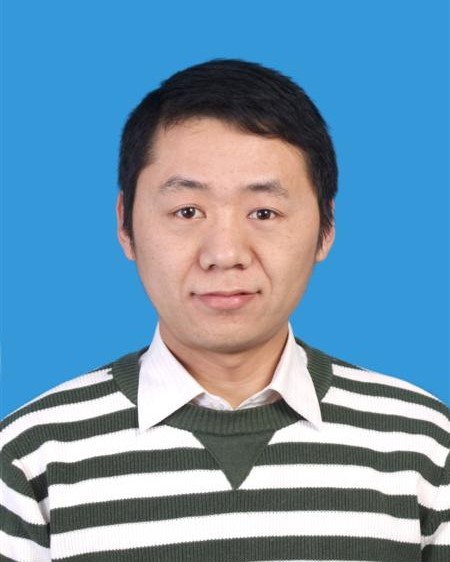
Prof. Jiahu Qin
National-Level Young Talent
University of Science and Technology of China, China
Biography: Professor, Doctoral Supervisor. His research interests include cooperative optimization and decision-making for autonomous intelligent systems. He has secured over 10 national/ministerial-level grants including the National Science Fund for Distinguished Young Scholars, National Science Fund for Excellent Young Scholars, Fok Ying-Tong Education Foundation Grant, Young Talent Program of Overseas High-Level Talent Introduction Plan, Key Program of NSFC Joint Funds, and a major project under China's "Next-Generation Artificial Intelligence 2030" Initiative. His honors include First Prize in Natural Science (Rank 1) and First Prize in Technological Invention (Rank 1) from the Chinese Association of Automation (CAA), First Prize in Natural Science from Heilongjiang Province (Rank 3), CAA Youth Scientist Award (highest honor for young scholars), Guan Zhaozhi Award (top paper prize at Chinese Control Conference), and IEEE Industrial Electronics Society Best Conference Paper Award. With over 100 publications in premier journals including Automatica and IEEE Transactions, he has authored 2 Springer monographs and holds 40+ granted invention patents. Currently serving as Deputy Secretary-General of CAA, he chairs the Intelligent Control and Systems Committee at the Chinese Institute of Command and Control, while holding vice-chair positions at CAA's Youth Working Committee and the Intelligent IoT Systems Committee of the Chinese Association for System Simulation. He also serves on editorial boards for Automatica (IFAC flagship), IEEE TIE、IEEE TCNS, and Acta Automatica Sinica.
Title: Autonomous navigation and control of mobile robots in complex environments
Abstract:
This report primarily covers the research progress made by this research group in recent years in the fields of motion planning and control for mobile robots, along with the application of related achievements, such as autonomous drone racing.


Prof. Hao Shen
Young Yangtze River Scholar, h-index 68
Anhui University of Technology, China
Biography: Professor Hao Shen, Ph.D. Supervisor, Young Yangtze River Scholar (MOE), Dean of the School of Electrical and Information Engineering, Director of the Anhui Industrial Enterprise Intelligentization Industrial Generic Technology Research Center, Deputy Director of the Anhui Provincial Key Laboratory of Special Heavy-duty Robots, and Deputy Director of the Anhui International Joint Research Center for Metallurgical Process and Systems Science. He has been named a Global Highly Cited Researcher by ESI for four consecutive years and an Elsevier-China Highly Cited Scholar for three consecutive years. Awardee of the Anhui Provincial Outstanding Youth Program for Universities, with 13,425 Google Scholar citations and an h-index of 68. His research achievements have received six provincial/ministerial-level science and technology awards at the second prize level or higher from Anhui, Shanghai, Henan, and the Chinese Association of Automation (including the 2021 Anhui Provincial Natural Science First Prize as the first completer). Additionally, he holds honors such as the National Baosteel Outstanding Teacher Award, Anhui Provincial High-Level Supervisor, and Anhui Provincial Teaching Excellence Award.
Title: Research on Metallurgical Intelligent Monitoring System Based on Industrial Internet of Things
Abstract: The automation level of the domestic metallurgical industry has significantly improved in recent years, however, the level of intelligent control over various production processes needs to be improved. The use of industrial Internet of Things technology can effectively improve the production efficiency and quality level of the metallurgical industry, and help enterprises accelerate digital transformation. Around this theme, the project team has successively developed a blast furnace hearth status monitoring system, a full process monitoring and warning system for the production status and fault diagnosis of metallurgical process equipment, and a real-time monitoring system for the rolling status of long rolled pieces during the rolling process, and achieves some applications.


Prof. Xiangpeng Xie
IEEE Senior Member
Nanjing University of Posts and Telecommunications, China
Biography: Professor, doctoral supervisor, senior member of IEEE/CAAI/CAA. His interests include intelligent perception and control of information physics systems, interpretability of artificial intelligence, and so on. He has presided over more than 10 projects and talent plans at or above the provincial and ministerial level, including the National Natural Science Foundation Excellent Youth Fund and Provincial Outstanding Youth. He has also won the Youth Science and Technology Award of the Chinese Society of Automation, the Second Prize of the Shanghai Natural Science Award, the First Prize of the Natural Science Award of the Chinese Society of Automation, the First Prize of the Natural Science Award of the Chinese Society of Imitation, the First Prize of the China's 100 Most Influential International Academic Papers Award, the First Prize of the 18th "Challenge Cup" National College Students' Extracurricular Academic and Technological Works Competition National Competition, and the Special Award (First Guidance Teacher) of the Jiangsu Division. He has also been awarded research awards such as the Excellent Master's Thesis Guidance Teacher of the Chinese Society of Automation in Graduate Literature and Engineering, and the Second Prize of the. He serves as an editorial board member for six SCI international journals, including IEEE TII, IEEE TCYB, and IEEE TFS.
Title: Explainable modeling and optimization control of industrial cyber physical systems driven by artificial intelligence
Abstract: Under the imperative of industrial green transition, it is timely to study rule-based interpretable artificial intelligence technology, which is crucial for improving the intelligence level of industrial cyber physical systems. The purpose of this report is to explore the following research content: a data-driven model and its evolutionary representation of industrial cyber physical systems oriented towards the dynamic interaction relationship of all factors of production, starting from changing the paradigm of data and expert knowledge extraction and integration, a high-order self-organizing hierarchical fuzzy modeling theory method with interpretable prerequisites, high accuracy, and strong generalization ability is established through a combination of rules and learning; Inspired by the "Ebbinghaus Memory Forgetting Curve", a multi instantaneous homogeneous matrix polynomial type gain scheduling mechanism was proposed to quantitatively describe the evolution trend of energy analysis functional, enhancing the interpretability and adaptability of the core control algorithm. Finally, a brief introduction is given to the preliminary application exploration of theoretical research results in fields such as human-machine shared driving.


Prof. Engang Tian
IEEE Senior Member
University of Shanghai for Science and Technology, China
Biography:Dr. Engang Tian is a Professor at the University of Shanghai for Science and Technology and a Ph.D. supervisor in the School of Optical-Electrical and Computer Engineering. He is a Senior Member of IEEE and was appointed as a Distinguished Professor under the "Eastern Scholar" program by the Shanghai Municipal Government. His research interests include networked system analysis and control, network security and attack modeling, data-driven systems, battery energy management, and wireless power transfer. Dr. Tian has published over 230 SCI-indexed journal articles, including 12 ESI Highly Cited Papers. He has led five projects supported by the National Natural Science Foundation of China (NSFC) and two projects funded by the Shanghai Natural Science Foundation. He has received the IEEE Outstanding Leadership Award, and has been recognized on the World's Top 2% Scientists List as well as the Global Highly Cited Scientists List. He is also a two-time recipient of the Second Prize of the Shanghai Natural Science Award.
Title: Research on Attack Strategy Design and Defense Mechanisms Based on Critical Information
Abstract: With the widespread deployment of Networked Control Systems (NCS) in critical sectors such as industry, transportation, and energy, security threats have become increasingly prominent. Traditional cyber-attack strategies often overlook the heterogeneous impact of data packets on system performance. To address this issue, this report proposes a novel important-data-based attack strategy framework and corresponding defense mechanisms, aiming to enhance the intelligence and stealth of cyber attacks. This report proposes a novel attack strategy framework based on the importance of data, aiming to improve attack stealth and effectiveness under resource constraints. Two strategies are developed: a deterministic method that targets high-impact data packets, and a stochastic method that balances energy consumption and attack intensity through probabilistic control. To defend against such attacks, a parameter estimation-based approach is introduced, enabling the system to detect and mitigate attacks without prior knowledge of the attacker. A resilient state estimator is designed using linear matrix inequalities, maintaining system stability under intelligent threats. A future direction involving encrypted data importance modulation is also discussed.
